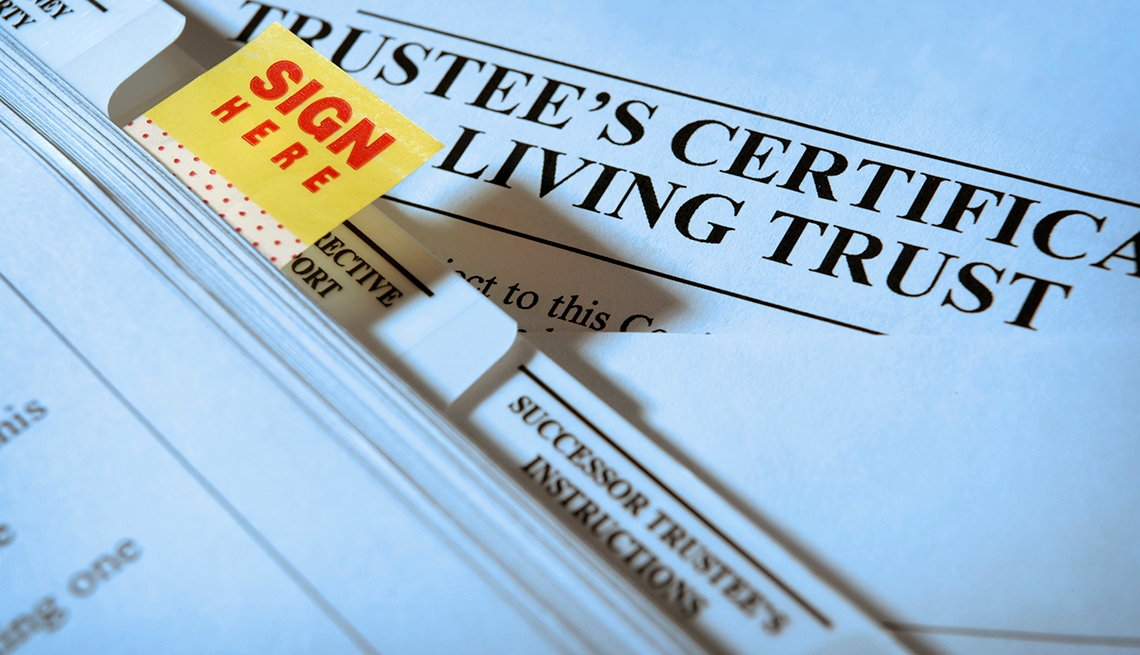How Caregivers Can Avoid Guardianship, Conservatorship and Probate Court
Plan ahead and give them the legal authority to help you
En español | We've all heard the horror stories of families fighting for guardianship in court while their loved one lies unconscious in the hospital. Or the tales of years-long probate cases that deplete assets and destroy relationships.
As a lawyer, I frequently hear these horror stories and less dramatic, but still burdensome, situations family caregivers experience that could have been avoided with a little planning. As a caregiver, I've lived it, too.
When my well-meaning mom used an online service to make a will and other legal documents, she didn't know that she'd pass away within a few years. She also didn't know that if she had spent a few hundred more dollars to meet with an attorney, it would have saved thousands and given me the authority to act on her behalf and her estate's behalf without court involvement. Her estate would not have had a claim made against it by a relative who thought she passed away with money (she didn't) and that he legally deserved some of it (he didn't). I wouldn't have had to dip into my personal finances to cover expenses like funeral costs. I could have gone back to my life much sooner instead of dealing with the court for a year to handle her final affairs. I wouldn't have had to jump through numerous legal hoops to get her will into the probate court. (Most of the time, online wills have errors or are not properly filled out and my mom's will had issues.)
Attorney's fees and stress can pile up on a caregiver, both during their loved one's lifetime and after. The time is now to explore ways that you can make it easier, less expensive and more efficient for your future caregiver and yourself.
Everyone's life circumstances and goals are different and there are countless legal tools and techniques. It is not possible for one article to give you a complete explanation of all the ways you can plan. But consider the value in doing comprehensive research and speaking with experts instead of trying to do this all yourself. There are a few things in life that are risky to DIY: electrical wiring, skydiving and legal documents. The value of a proper life care and post-life plan and savings on potential future legal fees and costs far outweigh the minimal upfront costs.
Guardianship and conservatorship
As you're planning ahead, remember that if you are somehow incapacitated, meaning you can't speak or act on your own behalf, your caregiver needs the legal authority to help you. If you don't have valid and appropriate documents in place, then your caregiver will likely need to petition a court for a guardianship. This could have another name in your state, like conservatorship. Guardians may be subjected to rigid oversight and have to account to the court regularly. Another person (for example, the unpredictable relative who seems to show up in many cases) could try to argue that they should be your guardian.
By creating certain legal documents, you may be able to cover your bases to avoid a guardianship entirely or, at least, have your wishes known by the court that is deciding who gets to be your guardian. These documents can speak to what you want to happen with your “person” (such as your medical care and where you will live) and your “property” (such as your businesses, real estate or money). They may include a health care surrogate or proxy, a living will, a durable power of attorney, a living trust or declarations of a preneed guardian and more. Find out what documents are used in your state of residence and how they work to make your plan.
Will substitutes
You can also take action today that will help your loved ones after you pass away. Creating “will substitutes” is a good first step. A will substitute can transfer property to recipients you've preselected for the time of your death and bypasses the need for probate. This could be through a payable on death (POD) designation, by naming beneficiaries on certain accounts like life insurance and retirement accounts, creating life estates or future interests, making assets joint or community property with rights of survivorship, having a good business succession plan if you own a business or by way of a trust. When you create these will substitutes, there should be no need for probate (and much less opportunity for conflict) on these assets. There are nuances and implications to any of these will substitutes that could affect taxes or your loved ones’ rights, so be sure to thoughtfully create your will substitutes to make sure they meet your intentions.
Last will and testament
Even if you think you don't need one, create a last will and testament. For many people, their will doesn't have to be complicated or expensive to make. But the will does have to comply with your state's laws (both in what it says and in how you prepare and sign it). What is complicated and expensive is when a will doesn't meet those requirements. Court involvement is a near-certainty when that happens.
Remember that your will may not only cover what happens with your stuff. It can and should include your funeral wishes and final wishes for your bodily remains. Families can, and do, fight over a person's body and what to do with it. And while you think it may not happen to you, make sure you account for this in your legal documents.
While we don't have a crystal ball and can't control all the outcomes, a solid plan does help your future caregivers and you to navigate life's predictable and unpredictable events. What you do today can go a long way in reducing future costs and avoiding the need to go to court to resolve conflicts.
Amanda Singleton is a recipient of CareGiving.com's national Caregiving Visionary Award and serves caregivers across their life span through her law practice. Follow her on Twitter and Facebook.


